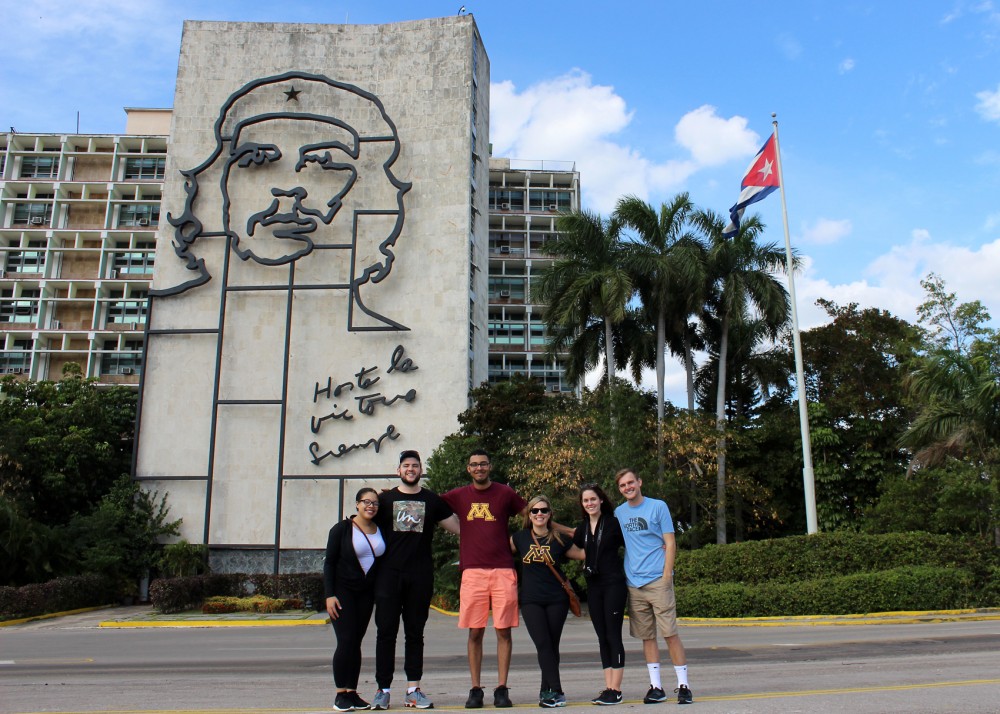A group of 30 University of Minnesota students spent their spring breaks in Cuba riding around in cars from the ’50s, interacting with locals and soaking in a country previously cut off from the United States.
The trip was part of an entrepreneurial management class through the Carlson School of Management, in which students took in Cuban culture and pitched new ideas to local entrepreneurs to help them run businesses.
The lack of cultural familiarity was a challenge, marketing senior Annette Betting-Fuentes said. But when her 10 days were up, she said she had trouble leaving.
“Just the people that they met and the stories they told were a really powerful piece [of the trip],” she said.
The trip was broken up into two sections, Betting-Fuentes said. The first was classroom-style work, visiting museums and learning about Cuban history from a Cuban viewpoint. The second gave students more freedom to absorb local culture by immersing themselves in Cuban life.
The program let the students meet with Cuban students, said management information systems sophomore Clyde Carver.
“The class really put us in some really interesting places,” he said, citing visits to museums, the National Hotel of Cuba and visits to resorts.
Carver’s business idea was to use tobacco as a fuel source due to its high oil content and its ability to be genetically modified.
While he wasn’t able to pitch the idea to any cigar company executives, he spoke with a local college student who was interested in the idea, which Carver said could lead to opportunities down the line.
The group was the first CSOM class to visit Cuba, prompted by the restored diplomatic relations between the country and the U.S. in July 2015.
Steve Spruth, who runs the course, said he has led similar trips to other countries, such as Brazil. However, he said, Cuba represents a unique chance for the class to see the country while it is relatively untouched by American business interest.
“History is being made in Cuba,” he said.
Spruth said he tries to ensure students can get real, hands-on international business experience.
Alec Jaeschke, a first-year Carlson student, said he developed an idea for a “beer-cicleta” — a pedal pub that partners with local businesses. He and three others pitched the idea to the Havana Club rum company.
“It could be something that could very well be, even if it wasn’t through Havana Club, a very successful business model,” he said, adding they also tossed around ideas for partner restaurants but decided they needed to think more creatively.
Students also suggested that an owner of more than 20 1950s-era cars, now used as taxis, simplify his service online.
Spruth said the taxi-owner was excited by the idea and plans to keep communicating with the students to let them help develop the project’s website.
U.S. Sen. Amy Klobuchar, D-Minn, and U.S. Rep. Tom Emmer, R-Minn, are leading efforts to lift the trade embargo between the U.S. and Cuba in order to create jobs.
President Barack Obama recently visited the country. While there, he gave a speech calling for peace and understanding between the two nations.
Carver said he also enjoyed participating in Cuban culture, which he said is very different than his family’s home country, Chile. He said many people think all Latin and South American culture is similar, with many overlapping elements.
“Cuba is not like that at all,” he said. “It’s a super, super unique culture.”








